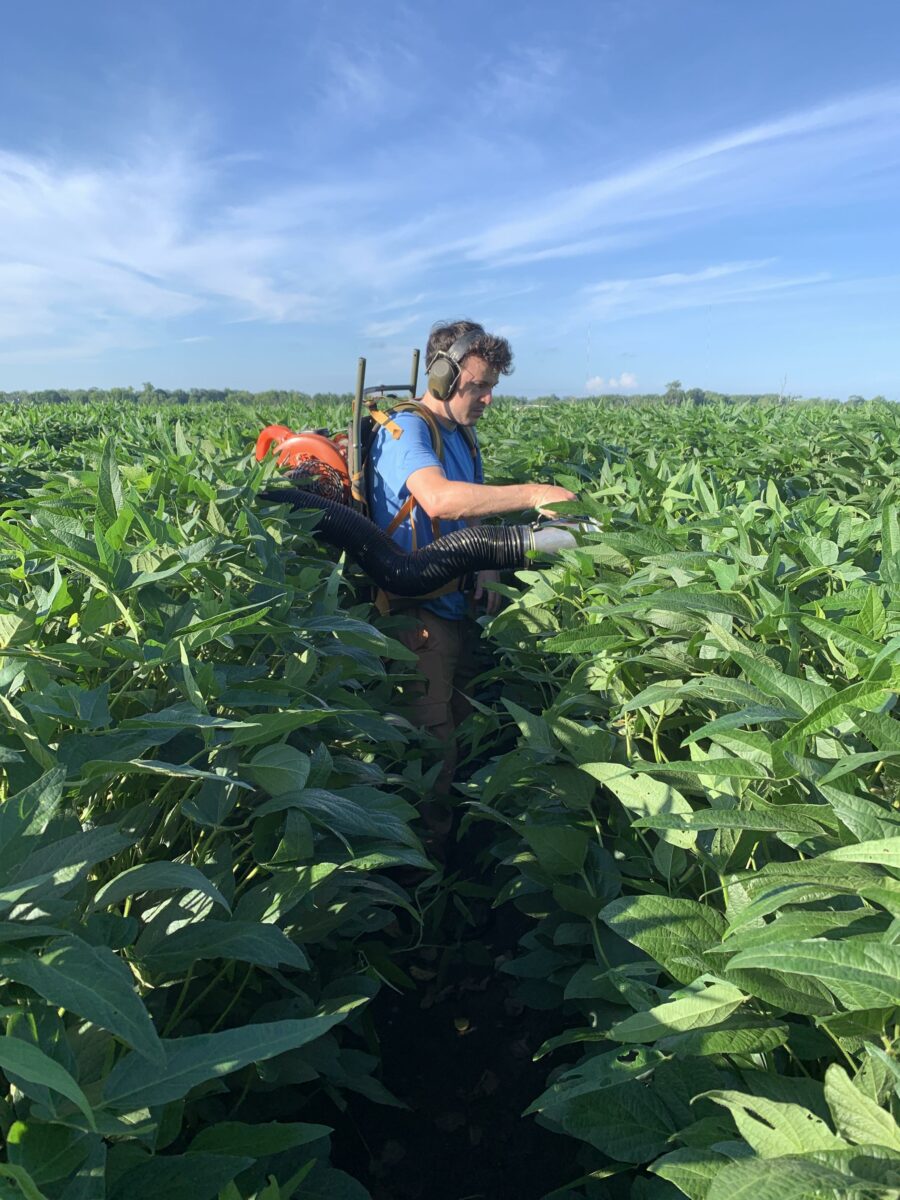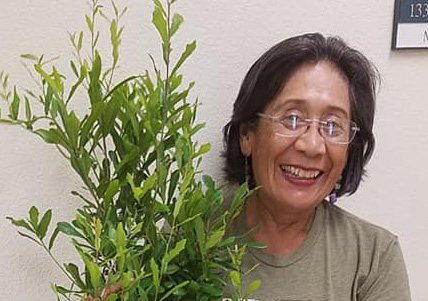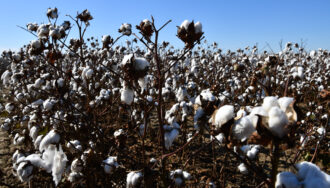
Using Sunn Hemp as a Mulch to Control Weeds in Vegetable Production
Controlling weeds during the height of summer vegetable production may be one of the biggest production-and economically limiting challenges growers face in the Deep South.
One farmer has seen success in using sunn hemp as a mulch for weed suppression in long-season summer and fall crops. Cheryl Nunes of River Queen Greens in New Orleans received a $12,350 Producer Grant to test her theory that growing and roller crimping sunn hemp as a mulch will not only help control high weed pressures in the summer but will also create market opportunities by extending the crop production season.
Nunes said that sunn hemp would replace the need for black plastic or herbicides, providing a viable alternative for sustainable summertime growing in her area. “The sunn hemp generates a massive amount of material that replenishes carbon and fixes nitrogen. The presence of this voluminous ground cover also enables us to access the fields with a tractor, even during the wet summer season, when we otherwise would not be able to drive heavy equipment over bare, muddy soil,” she said.
In addition, Nunes believes that using sunn hemp as a grown-in-place mulch for summer crops would increase their crop yield during the slow market period during September and early October. “Crops like winter squash, melons, and fall peppers, which we currently don’t grow at all because of the challenges of over-summering in our climate, would enable us to return to market a month earlier than we currently do,” she said. “It would have a positive impact on the market, which is typically low on products across the board that time of year, and it would mean that paying our employees during the summer and early fall would have a quicker pay-off.”
In the study’s first year, sunn hemp seeded in June produced a successful stand, which was crimped in September. Fall brassicas were planted directly into the residue.
“The sunn hemp residue kept the field dry through heavy winter rains, provided adequate weed suppression through the winter, and even provided some cover as we transitioned into spring planting,” said Nunes.
Sunn hemp as a mulch also proved to be a time and labor-saver for weed management.
“While we did need to do some spot weeding of vines that grew alongside the sunn hemp, we collectively only spent a half day weeding the entire one-acre field between September and March. We estimate that this is about 25 percent of the time we spent weeding our broadcasted sunn hemp field from the previous year,” said Nunes.
The project is expected to wrap up March of 2026.
State Contacts
SARE State Coordinators are vital for expanding sustainable agriculture training for Extension, NRCS, and other agricultural professionals, who will then help producers transition to a more sustainable agriculture.
SARE IN LOUISIANA

million
The Louisiana SARE program is facilitated through a joint collaboration between the Louisiana State University and Southern University. Louisiana SARE partners with researchers, extension faculty, producers, and community organizers to research and implement the best science-based practices available in all aspect's of Louisiana's agricultural system.
Featured News
 Pest Management
Pest Management
Studying the Impact of Conservation Plantings on Insect Pests and Their Predators
BATON ROUGE, Louisiana – Conservation plantings, through various stewardship programs, do well to provide a myriad of benefits. These range from controlling erosion, to improving water quality, to promoting healthy soils. However, the impacts of such strategies on cash crop pests and the natural enemies that target them is less known. Louisiana State University researchers, […]



